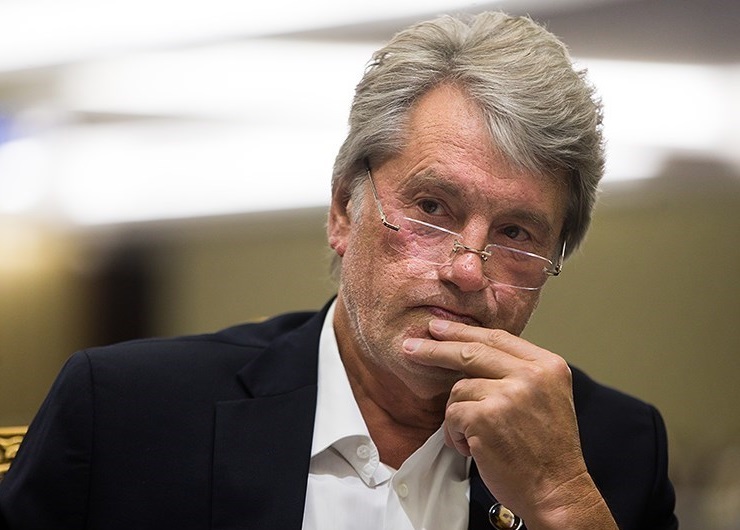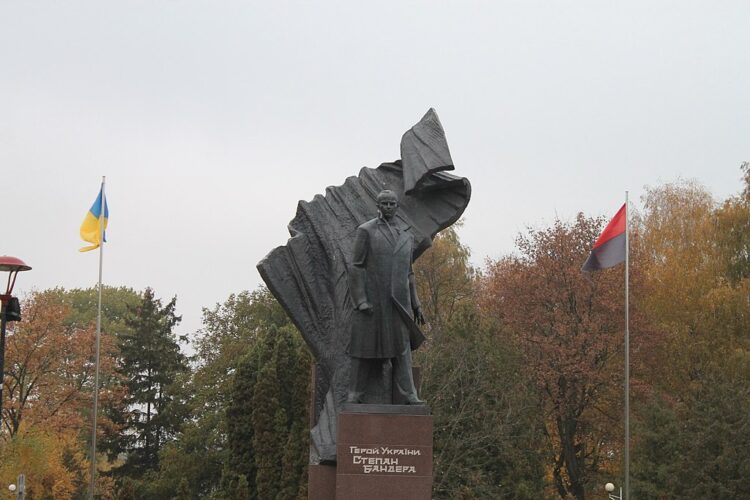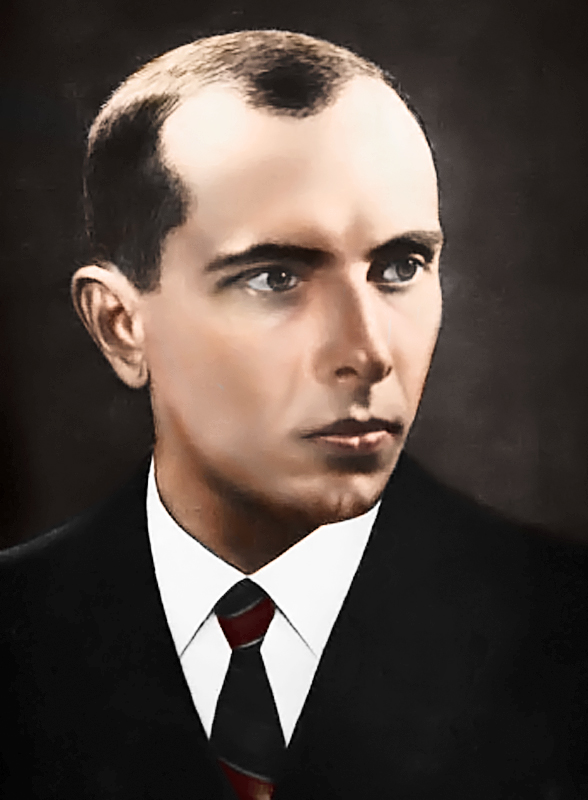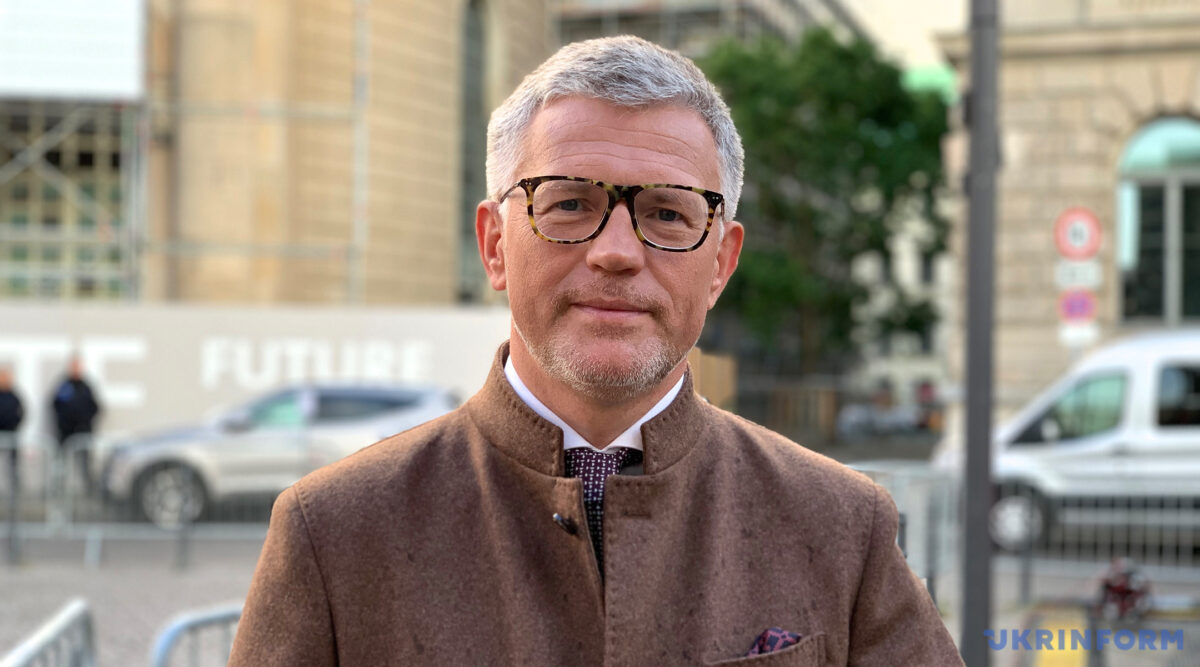Ukraine’s ambassador to Germany, Andriy Melnyk, needlessly waded into a cesspool of controversy recently when he glibly denied the historically-proven fact that the late Ukrainian nationalist icon, Stepan Bandera, was a “mass murderer of Poles and Jews.”
During an interview on German television, Melnyk fancifully described Bandera as a “freedom fighter” who personified Ukraine’s struggle for independence.
When the German interviewer pressed him on Bandera’s role in the massacre of Jews and Poles during World War II, Melnyk shamelessly denied that Bandera was complicit in these atrocities and insisted that there is no evidence to support this accusation.
Melnyk’s offensive view of the pogroms unleashed by Bandera and his associates did not escape the notice of the Israeli embassy in Ukraine or Ukraine’s Foreign Ministry.
“The statement made by the Ukrainian ambassador is a distortion of the historical facts, belittles the Holocaust, and is an insult to those who were murdered by Bandera and his people,” said Israel’s embassy in an apt Twitter post.
As for the Ukrainian Foreign Ministry, it properly distanced itself from Melynk’s revisionist nonsense.
It is clear that Melynk belongs to the school of Ukrainian nationalists who hail Bandera as a national hero and role model and cynically sweep his homicidal activities under the rug.
This malignant process began in earnest in 2004 when Ukrainian President Viktor Yushchenko bestowed the honorific title of “Heroes of Ukraine” on Bandera, the leader of faction “B” within the Organization of Ukrainian Nationalists (OUN), and on Roman Shukhevych, the commander of its armed wing, the Ukrainian Insurgent Army (UPA).

As reputable historians have repeatedly demonstrated, OUN-B and UPA both played a major role in the annihilation of Ukrainian Jews and ethnic Poles during the Nazi occupation of the Soviet Union and Poland.
As he left office in 2010, Yushchenko went one step further, recommending that streets, public places and statues should be named after such abominable figures.

Yushchenko’s successor, Viktor Yanukovych, rolled back “the cult of OUN, but it returned with new energy” in 2014, writes the Ukrainian Canadian historian John-Paul Himka in his stellar book, Ukrainian Nationalists and the Holocaust.
According to Himka, young Ukrainian scholars like Volodymyr Viatrovych, a key figure in the Ukrainian Institute of National Memory, “sought to exonerate OUN and UPA from accusations of antisemitism and participation in the Holocaust.”
Ukrainian scholars such as Yuri Radchenko and Andrei Usach have refuted Viatrovych’s claims. But judging by Melnyk’s misguided comments, OUN and UPA are still regarded as exemplars of Ukrainian nationalism, particularly in western Ukraine and in the Ukrainian diaspora in Canada and the United States.
Bandera, probably Ukraine’s best known nationalist, has been turned into a larger-than-life hero by Ukrainians of this ilk.
Born in a village in the province of Ivano-Frankivsk in 1909, Bandera studied law in Lviv and joined OUN shortly after its formation in 1929. As Himka points out, OUN aligned itself politically with fascist Italy and Nazi Germany, but after World War II it disavowed fascism, doctoring documents to eliminate “overt expressions” of its infatuation with Benito Mussolini and Adolf Hitler.

OUN split into two separate factions, led by Andrei Melnyk and Bandera, in 1940. Their respective followers shared the same ideology, but their primary bases of support were geographically distinct. Bandera was strongest in Galicia and Volhynia, while Melynk was predominant in Bohemia, Moravia and Bukovina.
In pre-war Poland, OUN activists engaged in a campaign of terrorism, assassinating the Polish minister of interior, Bronislaw Pieracki, and the anti-OUN Ukrainian pedagogue Ivan Babii.
By 1939, OUN’s membership stood at 9,000, but rose to 40,000 when sympathizers were included.
OUN’s affinity with Germany oscillated, as Himka notes. “There were moments when OUN was close to the Germans, other moments when they were enemies, and yet other moments when OUN hoped to court the Western allies.”
When it became clear that Germany would lose the war and OUN’s participation in the mass murder of Jews would tarnish its reputation with the Allied powers, OUN propagandists quickly took steps to clean up its historical record, which cannot be washed away.
When the Germans marched into Lviv on June 30, 1941, a week after Germany’s invasion of the Soviet Union, they were accompanied by the Nachtigall battalion, which was commanded by Yaroslaw Stetsko, one of Bandera’s chief lieutenants.
Stetsko loyalists distributed leaflets accusing Jews of being communists and supporters of the Soviet Union. At the behest of the Germans, OUN identified and registered Jews. In short order, OUN helped instigate two pogroms in Lviv which claimed the lives of about 6,000 Jews.
Pogroms organized by OUN and Ukrainian police erupted throughout Polish and Russian territories controlled by Germany. These massacres irretrievably poisoned relations between Ukrainians and Jews.
From 1943 onward, OUN terrorists killed upwards of 100,000 Poles. According to the American historian Timothy Snyder, “the ethnic cleansing was a Ukrainian attempt to prevent the post-war Polish state from asserting its sovereignty over Ukrainian-majority areas that had been part of the prewar Polish state.”
In the summer of 1941, OUN issued a declaration of independence, but the Germans were intent on keeping Ukraine for themselves and did not recognize the new state. They proceeded to arrest Bandera and his cronies, who were eventually released.
Bandera went into exile in West Germany after the war. He was assassinated by the Soviet secret service in 1959.
“It is a sad comment on Ukrainian memory that the man declared a hero in Ukraine headed a movement that was deeply involved in the Holocaust,” writes Norman Goda, a professor of Holocaust studies at the University of Florida.
It is equally discouraging that Ukraine’s ambassador to Germany attempted to whitewash Bandera, a fascist whose crimes have stained Ukrainian nationalism.
